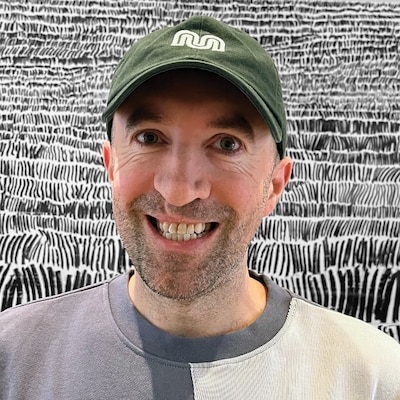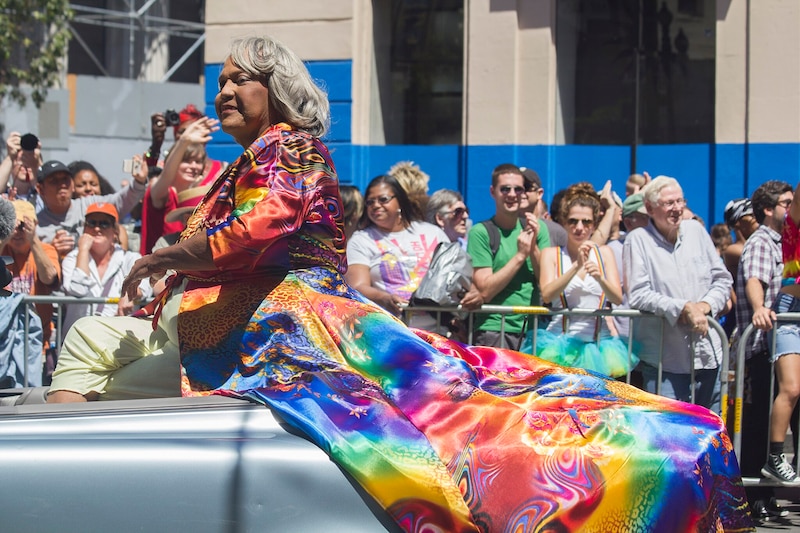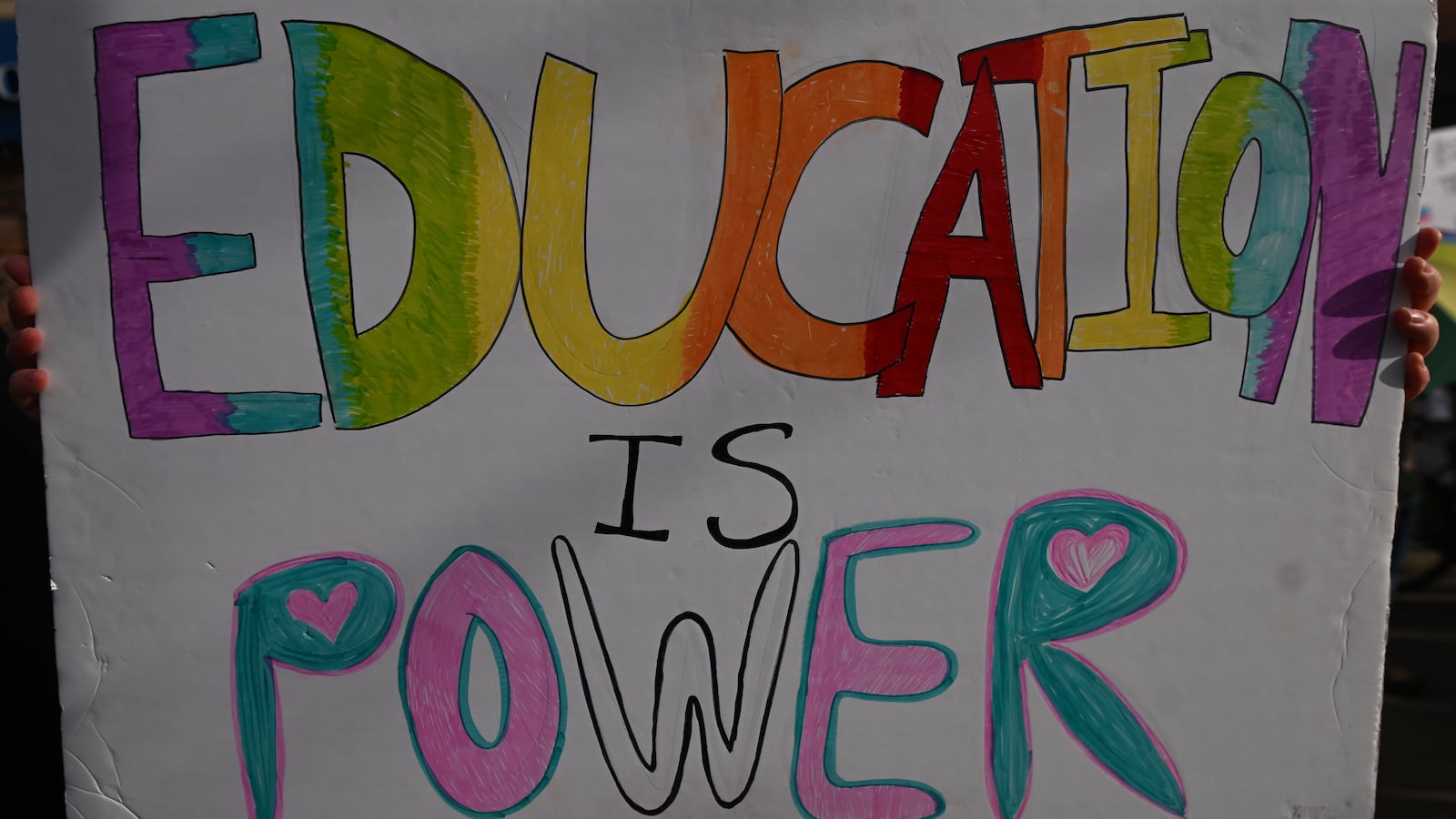For the past 10 years, I’ve been teaching math to middle school kids in New York City. My classes are filled with children, ages 10-14, concerned with their friends, their responsibilities, phones, and, if I’m lucky, pre-algebra. In that way, these students are the same as they were a decade ago. But in so many other ways, they are different.
The pandemic and social media have changed their realities in painful and pressing ways. Many kids are grieving, confronting new addictions, and feeling extremely anxious about the future.

On the flip side, though, I’ve seen a growing number of students find creative and joyful ways of being open and out about their gender. More of our children want to explore, learn about, challenge, change, or move inside and outside the bounds of masculinity and femininity. Many kids seem to get that with increased access to an evolving gender spectrum, more people can experience more joy. In the trans community, I’ve heard this idea described as “genderful.”
That is exactly the concept that propels Miss Major Middle, a proposed public charter school that I hope to open in the fall of 2025. Located in Community School District 13 in Brooklyn, our team envisions a genderful middle school where students are agents of justice, where their identities are affirmed, their voices are heard, and their humanity is celebrated.
The spirit of our school will be embodied by our namesake, Miss Major Griffin-Gracy. Miss Major is a Black transgender activist who played a pivotal role in the Stonewall Uprising and has dedicated her life to advocating for the rights and well-being of transgender and gender non-conforming people.
I started thinking about the possibility of Miss Major Middle several years back, when an eighth grade student of mine bravely came out as non-binary. I noticed that other teachers and administrators were asking the student directly what non-binary meant and what they/them pronouns were. The onus of teaching these adults about their gender identity fell, unfairly, to the child.
I realized then that New York City needed a school established from its inception with the needs and voices of trans, nonbinary, queer, and ally students, teachers, and parents in mind. This is Miss Major Middle.

Our team didn’t invent the concept. As we’ve developed our school model, we’ve worked with existing genderful communities. We recently visited Magic City Charter Acceptance Academy, or MCAA, in Birmingham, Alabama, a mission-explicit LGBTQ+ affirming 6-12 school. During our visit, we learned that about half of MCAA’s students do not identify as LGBTQ+, yet chose the school because of its supportive and inclusive environment. This highlighted the broader appeal of such an educational setting, where students from various backgrounds and identities feel welcomed and are able to thrive.
As we work on our charter application (due this month to the SUNY Charters Institute), we’re underscoring that Miss Major Middle will strive to serve as an additional educational option. Our school wants to be part of the collection of schools already working to address issues of identity and discrimination.
What will make our school unique is our commitment to centering genderful students and teachers, and creating a safer space to learn and grow. I believe Miss Major will also demonstrate the appeal of an inclusive, progressive educational environment for students who do not identify as LGBTQ+. All of our middle schoolers will be able to explore their gender, embrace their own identity, and decide how they will walk authentically through the world.
What will that look like? At Miss Major Middle, our curriculum will have a STEAAM focus — that’s the traditional science, technology, engineering, arts, and mathematics, but we add to the mix an extra “a” for activism; our students will learn about (and how to become) changemakers. Our science curriculum will teach Gender Inclusive Biology, which focuses on how diverse organisms evolve and thrive, and our arts offerings will prioritize self-development and social-emotional well-being.
While we have not yet encountered public opposition, we are preparing to meet resistance due to misconceptions about gender and sexuality and a polarized national debate about affirming spaces. If we do receive this type of opposition, we know we can call on our robust support network, including elected officials, community organizations, hundreds of supportive families and, we believe, thousands of New York City residents ready to advocate for our school’s mission. The LGBTQ+ community’s history of resilience and flourishing in New York City positions us to address the questions and critiques that come our way.
As we’ve grown our community of families, I’ve often thought back to my own childhood. I was raised in Milwaukee, Wisconsin, in the 1980s, where I had no knowledge of, or access to, trans language.
One of my earliest memories is of being at my friend Emily’s birthday party when I was about 7. The girls at the party took their long, beautiful hair, wrapped it around their chins, and tied it off with hair bands, creating beards. I remember this gesture, this game, so vividly because what they showed me was what I felt inside. It wasn’t that I was a girl or a boy or even that I wanted a beard, although I did want long hair. It was that I felt somewhere in between and outside of what gender was and that it all felt like something to be played with.
I share this story because I wonder, “What if I had known there were non-binary people in this world? What if I could have used they/them pronouns? What if my friendships had been anchored upon shared interests and passions instead of split lines for the bathrooms? And what if the human values of consent, compassion, a right to privacy, and a space for joy eclipsed the developmental fixation on how kids ‘of a gender’ should look, sound, or act?”
The “what ifs” of my own experience speak to how far we’ve come. But I’m also aware of the hostilities that continue to surround many students and families. Hatred, misunderstanding, and transphobia force folks to hedge their efforts to disrupt the gender binary because they must think about safety and security.
At Miss Major Middle, our academic philosophy is one of total inclusivity because safer spaces lead to better outcomes for our kids. And isn’t this what we all want? Ours will be a shared space where we work toward physical and emotional safety for students. A shared space where our policies and resources are designed with and for trans, gender-nonconforming, queer, and ally students and families.
Right now, our children and families are speaking to us, asking us to do better. It is our responsibility and privilege to bring this vision of a genderful school — and a genderful future — to fruition.
Joji Florence (they/them) is an educator, agent of justice, and the co-founder and proposed Head of School for Miss Major Middle Public Charter School. A proud nonbinary parent, they live with their amazing, brilliant spouse and three joyful children in Brooklyn.

